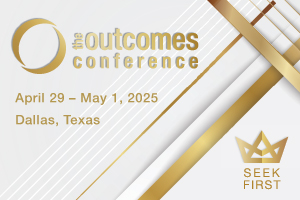
Transformational Leadership By Monty McNair and Kirk Mallette
 The Four Basic Components of Transformational Leadership
The Four Basic Components of Transformational Leadership
While Paul wrote of spiritual transformation 2,000 years ago, the conception of Transformational Leadership Theory is fairly new. James MacGregor Burns first brought the concept of transformational leadership to prominence in his book Leadership (Harper Torchbooks, 1978). Originally this was in the context of his research into political leadership, but this term is now used in organizational psychology as well.
There are four basic components of the Transformational Leadership Theory:
- Charisma or idealized influence is the degree to which the leader behaves in admirable ways and displays convictions and takes stands that cause followers to identify with the leader who has a clear set of values and acts as a role model for the followers. Jesus asks for us to follow his example of humility of taking the form of a servant, in order to truly be a blessed and great.
When he had finished washing their feet, he put on his clothes and returned to his place. “Do you understand what I have done for you?” he asked them. “You call me ‘Teacher’ and ‘Lord,’ and rightly so, for that is what I am. “Now that I, your Lord and Teacher, have washed your feet, you also should wash one another’s feet. I have set you an example that you should do as I have done for you. – John 13:12-15
- Inspirational motivation is the degree to which the leader articulates a vision that appeals to and inspires the followers with optimism about future goals, and offers meaning for the current tasks in hand. Jesus shared the vision and goals for his followers in John 14.
Do not let your hearts be troubled. You believe in God; believe also in me. My Father’s house has many rooms; if that were not so, would I have told you that I am going there to prepare a place for you? And if I go and prepare a place for you, I will come back and take you to be with me that you also may be where I am. … John 14:1-4
- Intellectual stimulation shows the degree to which the leader challenges assumptions, and stimulates and encourages creativity by providing a framework for followers to see that when they connect [to the leader, the organization, each other and the goal] they can creatively overcome any obstacles in the way of the mission. Jesus clearly gives a framework for followers to creatively overcome the obstacles rendered by our enemies by invoking a loving approach of response.
You have heard that it was said, ‘Love your neighbor and hate your enemy.’ But I tell you, love your enemies and pray for those who persecute you, that you may be children of your Father in heaven. He causes his sun to rise on the evil and the good, and sends rain on the righteous and the unrighteous. If you love those who love you, what reward will you get? Are not even the tax collectors doing that? – Matt. 5:43-46
- Personal and individual attention is the degree to which the leader attends to each individual follower’s needs and acts as a mentor or coach and gives respect to and appreciation of the individual’s contribution to the team. This fulfills and enhances each individual team members’ need for self-fulfillment, and self-worth. In so doing it inspires followers to further achievement and growth. Jesus speaks on an individual basis to inspire us for further spiritual growth and maturity, as he once did for the Apostle Philip.
Jesus answered: “Don’t you know me, Philip, even after I have been among you such a long time? Anyone who has seen me has seen the Father. How can you say, ‘Show us the Father’? Don’t you believe that I am in the Father, and that the Father is in me? The words I say to you I do not speak on my own authority. Rather, it is the Father, living in me, who is doing his work. – John 14:9-10
Transformational Leadership is a style of leadership where the leader works with employees to identify the needed change, creating a vision to guide the change through inspiration, and executing the change in tandem with committed members of the group.
These four elements are seen in successful leaders. If a leader only focuses on one aspect, such as charisma, then the important facets of an organization cannot thrive and develop. In other words, leaders cannot stand on charisma alone. They must also implement and provide inspiration, intellectual stimulation, and personal attention to transform an organization or individuals. Without all four components, leaders will struggle with true transformation of those he or she is leading.
The transformational leader knows that others are observing them and learning how to impact others. It’s about serving, holding to convictions, and providing encouragement and inspiration, while stimulating other to think through their own convictions and beliefs as they work, serve and live. True leadership that transforms becomes a personal interaction with those around you and in your network. Never underestimate the power of your influence and especially the power of Christ who guides you and makes all things possible.“Be transformed by the renewing of your mind” (Rom. 12:2) as you lead others through your day.
####
Monty McNair, Ph.D., currently serves York College in York, Nebraska as the Director of the Masters of Arts in Global and Organizational Leadership Studies and is an Associate Professor of Business and Leadership. He has taught as an online professor for York College Nebraska, Indiana Wesleyan University, William Woods University, and Harding University.
Kirk Mallette, Ed.D., has served as an Associate Professor of Education and Dean of Graduate and Online Studies the past five years at York College in York, Nebraska. He is also Director of Master of Arts in Curriculum Instruction for York. He has also served in public education as a teacher, principal and superintendent. This post is an excerpt from the 2018 Spring Edition of Outcomes Magazine.
REGISTER FOR THE OUTCOMES CONFERENCE 2019
Register by June 30, 2018 for 2019 for best rates!
(Anyone who registers by this deadline receives a 2018 Digital Pass FREE)

Transformed leaders, transform. Learn to lead like Jesus.
Registration for the Outcome Academy Online is open!
The registration deadline is June 18, 2018!







